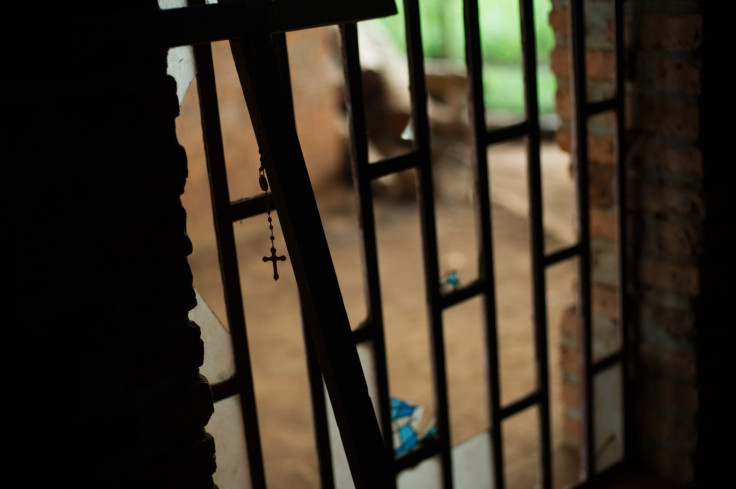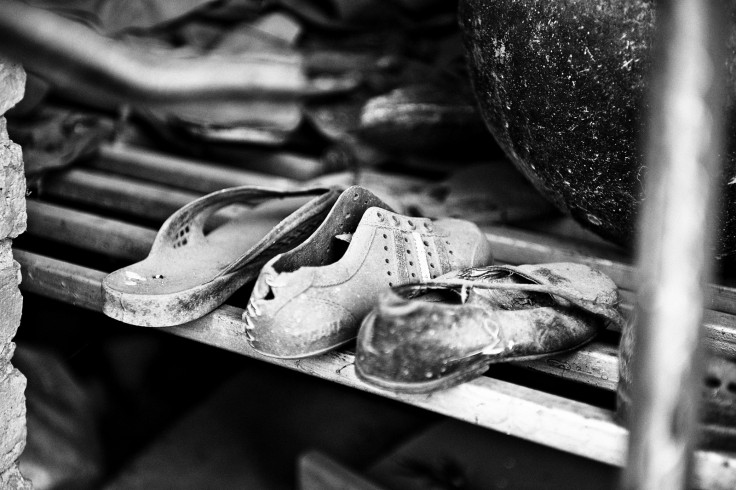Rwandan genocide anniversary: Why we have forgotten about the 100-day massacre?

The 100 days that decimated Rwanda in 1994 is one of the defining barbaric acts of humankind. At no other time in our history have so many been murdered so fast or so personally: up to one million people were slaughtered by hand with home-made weapons and household tools – knives, hammers and machetes used against neighbours.
It was an unparalleled modern genocide, a systematic attempt to exterminate the Tutsi minority and Hutu moderates in the name of a supremacist ideology propounded by Hutu extremists called Hutu Power. It was, in its execution, one of the most unequivocal cases of genocide the world has ever witnessed – but it is also one forgotten by the West.
The horrors of Holocaust are taught extensively in schools in Britain and the United States. From a relatively early age, children are taught about the deaths of six million Jews at the hands of the Nazi regime, the development of Adolf Hitler's anti-Semitic ideas and the Final Solution. Yet other modern genocides go unmentioned.
On the 20<sup>th anniversary of the Rwandan genocide, in 2014, a survey found more than half of young Britons are unable to name a single act of genocide since the Second World War, including Cambodia, Bosnia and Darfur. So why can't we remember the genocide in Rwanda?
Western prejudice and understanding
Stereotypes of Africa created by the West have created a prejudice against the continent as an arena of war, poverty and corrupt governments, which in part, led to a lack of understanding as to why the genocide took place. This prejudice has allowed a collective amnesia towards what happened in Rwanda in 1994 – the tiny, central African country is out of sight and out of mind.
Many still believe the conflict between the Tutsi and Hutu was tribal, an inevitable result of a savage Africa, but in reality the two groups shared the same language and cosmology and had no distinct areas of residence.
The Tutsi minority – Hutus make up 84% of Rwandans – were simply the traditional ruling caste, historically in control of the monarchy, the army and the administration. Hutu resentments bubbling away at the time were typical of the underclass: anger against past social injustices and a belief, partly justified, that all Tutsis demeaned them.

Dr Phil Clark, a reader in comparative and international politics at the School of Oriental and African Studies, tells IBTimes UK this deep Western prejudice against genocides in the developing world remains.
"Many people in the West think violence is simply how Asians and Africans resolve their differences," he says. "Much of the international media described the Rwandan genocide as just another flaring of ancient tribal hatreds. The violence was reported as commonplace and impossible to resolve.
Many people in the West think violence is simply how Asians and Africans resolve their differences. Much of the international media described the Rwandan genocide as just another flaring of ancient tribal hatreds
"In fact, the genocide was a deliberate political process with a long build-up and could've been stopped had outside actors paid more attention. Western prejudices toward Africa were a big reason why the genocide wasn't halted much earlier and why so many innocent civilians were killed while the world stood idly by."
The physical distance of the genocide, as well as attitudes, also plays a significant part in our remembering of the event. "The Holocaust shocks the West because it happened in the heart of Europe," says Clark. "It's the same with Srebrenica, a more recent case of a European genocide."
International failure
Such attitudes also explain the lack of international intervention at the time. When diplomatic messages warned the US, Britain and the United Nations of an imminent "new bloodbath" in February 1994, no action was taken. It was only three months after the cables were sent when UN members in May agreed to increase the contingent of troops to 5,000. But they were not deployed for a further six months – by which time the killing had already stopped.
Four days after President Juvenal Habyarimana's plane was shot down, sparking the massacre, France and Belgium sent troops into Rwanda to rescue their citizens – also airlifting American civilians out of the country. No Rwandans were rescued, not even those employed by Western governments in their embassies or consulates.
"I think Western nations, particularly the US and the UK, knew what was going on in Rwanda and chose not to call the violence of the day 'genocide' because of the legal and moral implications," Susan Thomson, an assistant professor of peace and conflict studies at Colgate University in New York, says. "They would have to act if such killing were taking place.
"It's easier to rely on tropes about ethnic hatred as a root cause of violence in Africa than to address the sociopolitical actions of local elites to explain violence like the 1994 genocide. So I think foreign governments did understand the conflict, but chose not to engage/intervene for geo-political reasons."

In the past few years, the Rwandan government has worked hard to show the international community the extent of the mass murder, and to rebuild a ruined country.
The capital Kigali now bears no scars of the genocide: it boasts economic growth, low levels of corruption and rising living standards, an emerging modern metropolis with new construction of upscale hotels and a grand shopping centre. But the survivors of 1994 continue to tell stories of their experiences, opening the eyes of Westerners to the devastation of the genocide.
It's easier to rely on tropes about ethnic hatred as a root cause of violence in Africa than to address the sociopolitical actions of local elites to explain violence like the 1994 genocide
Janvier Munyaneza, who was 14 at the time, was in Ntarama church in the Bugesera district during an attack, in which he lost everyone except his older brother. On 25 April 1994, 5,000 Tutsis were killed at the church.
"My first sister asked a Hutu acquaintance to kill her without any suffering. He said yes, and he dragged her by the arm on to the grass, where he struck her with a single blow of his club," he told Rwandanstories.org.
"But a next door neighbour, nicknamed Hakizma, yelled that she was pregnant. So he ripped open her belly like a pouch in one slicing movement with his knife."
Lack of interest
Yet despite growing awareness and hundreds of similar stories, Thomson believes there is still a disinterest in African sociopolitics. "I think permeating foreign policy is a lack of concern for African lives, in part because of this image of 'barbaric Africans' but also because of the lack of strategic interest in such countries," she says.
"There is no political, legal, strategic or moral basis for Washington, for example, to commit troops to a tiny central African country to stop a conflict that does not affect American interests."
To some extent, this can be seen in the global response to the Ebola outbreak in December 2014. More than 10,000 people have died of the disease in West Africa since the outbreak began but interest in the epidemic has waxed and waned in the West. Médecins Sans Frontières recently issued a critical analysis of the global response to the crisis, decrying missed opportunities for preventing the deadly disease from escalating.
In January, up to 2,000 people were slaughtered by militant Islamist group Boko Haram in Baga, north-west Nigeria but the news was overshadowed by the murder of 17 people by militants in Paris. A senior African church leader, Ignatius Kaigama, accused the West of ignoring the threat of Boko Haram, highlighting the stark difference between the West's willingness to act in the French incident.
Rwanda wants three of its genocide memorials registered among the world heritage sites, which would no doubt encourage awareness of the genocide – one so recent that 26% of the Rwandan population still suffers from post-traumatic stress disorder, according to a survey. But there is some way to go before Africa gets the attention it deserves from the West.
© Copyright IBTimes 2025. All rights reserved.





















